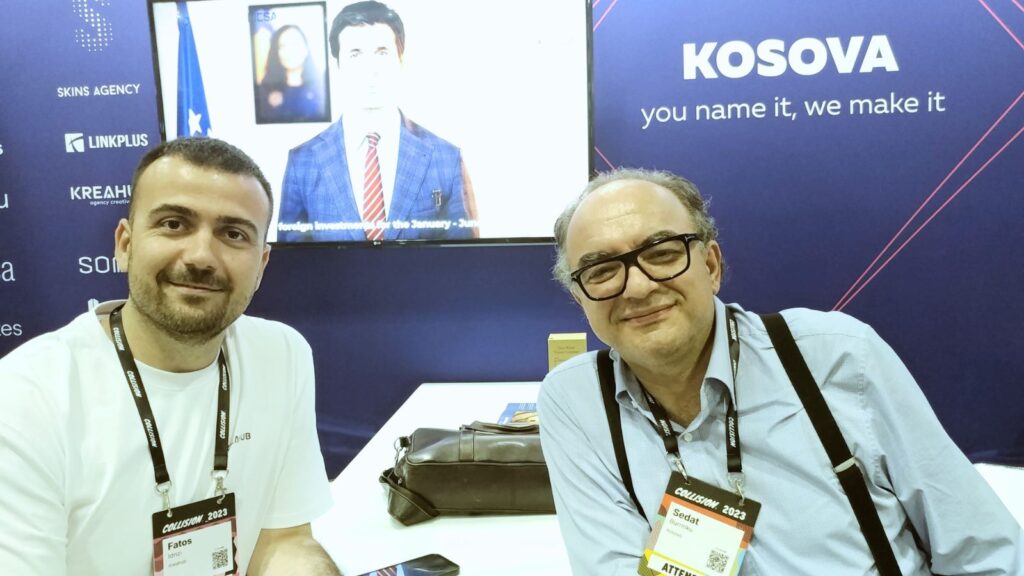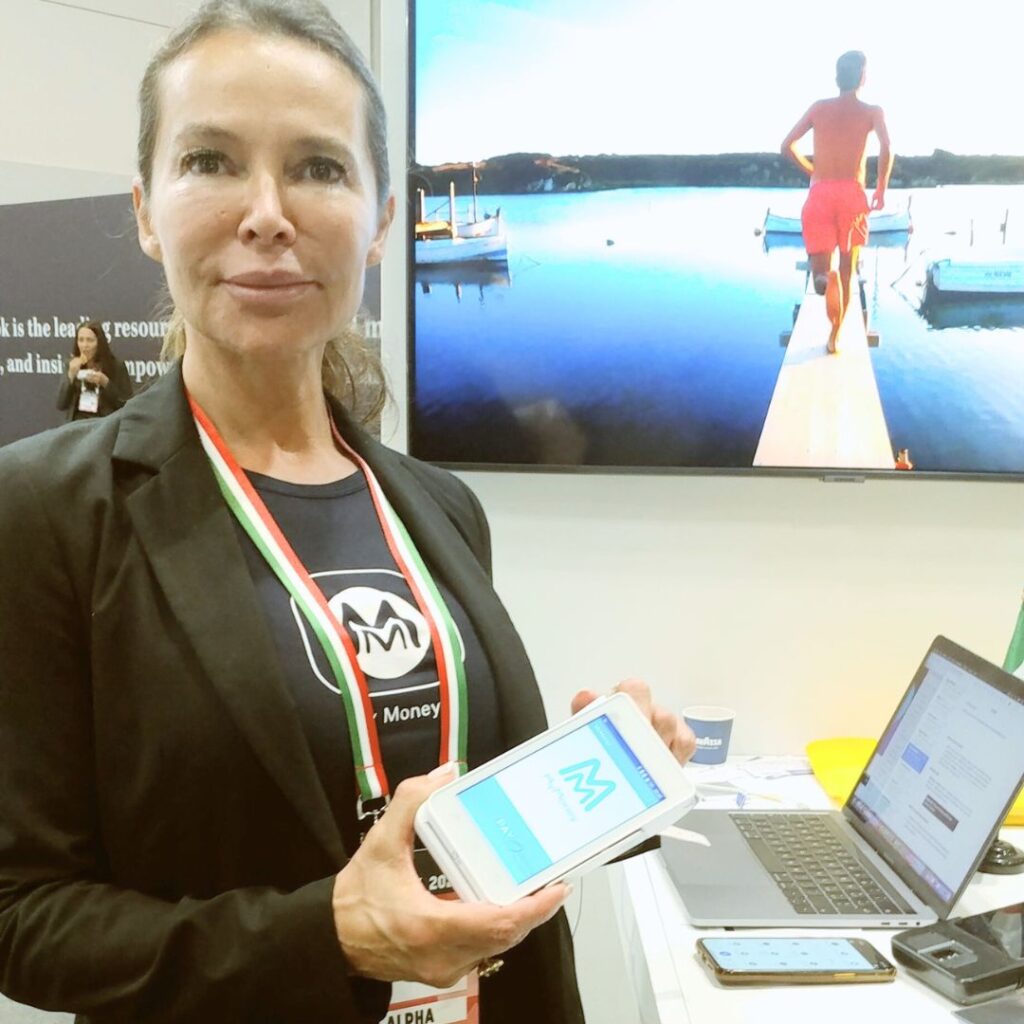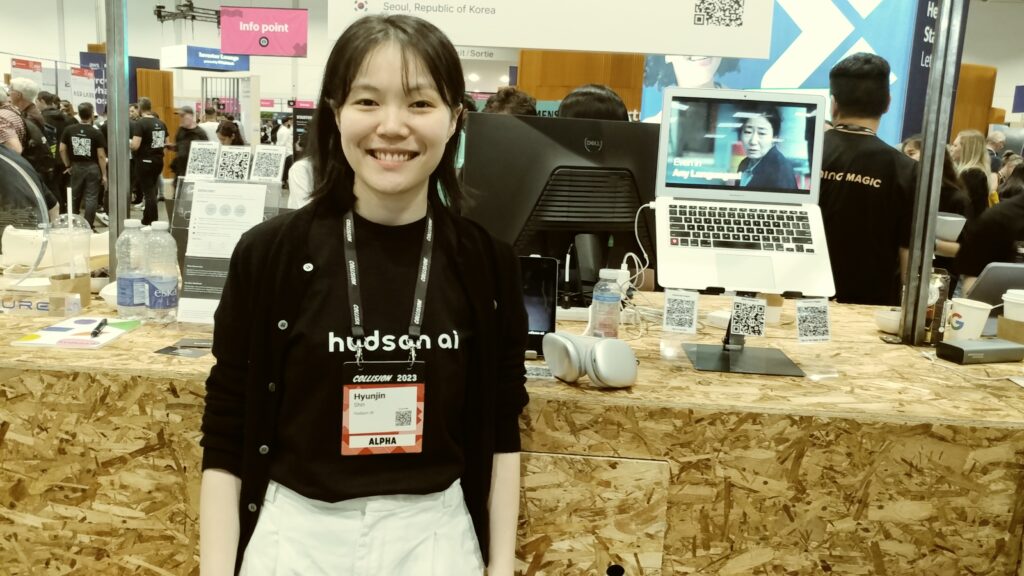Global innovation comes to Collision

Hoping to collide with angels and investors, nearly two thousands startups and partners from 76 countries and thirty industries convened at Collision in Toronto.
For attendees, it was a chance to take a peek at the future of tech. For exhibitors and startups, an all-access pass to global players, all under one roof. Indeed, floor exhibitors spanned the globe: Italy, Kosovo,Portugal, South Korea, and more.
The worldwide innovation and startup scene has had a rollercoaster few years. 2021 saw next-level growth, a trend that continued into 2022, until conflict and an energy crisis in Europe, supply-chain disruptions, layoffs, and inflation meant a period of instability. This has lasted into 2023, though at this midpoint of the year, there’s been an upswing.
According to Startup Genome’s Global Startup Ecosystem Report 2023 — generated from analysis of data from 3.5 million startups across 290 global ecosystems — VC funding is still down, although gaming, blockchain, and fintech all saw increases. The AI and Big Data sub-sector has the highest number of total VC deals, with 28% of the global share.
Entrepreneurs from around the world are seizing opportunities to disrupt industries, solve pressing challenges, and create innovative solutions. Collision is just one place to help make that happen.
Here’s a look at four countries that came to town.
Kosovo’s rapid growth
At just fifteen years old, the small Balkan nation of Kosovo came to Collision hoping to position itself as a burgeoning tech incubator — with a workforce less costly than most others in Europe.
Representing the country were Sedat Burrniko, Toronto’s consul general of Kosovo, and Fatos Idrizi from Pristina-based Kreahub, a company that mainly does web design, web development, branding, and digital marketing. Tenton, a software development company from Kosovo, was also part of the team.

“Kosovo is a young country. It has a lot of potential in IT, among other fields and concepts. So, we would like to introduce our companies to the rest of the world,” Idrizi said, adding that his country has one of the highest Internet user rates in Europe, at 96.4% among a population of nearly two million.
One of their biggest success stories was a made-in-Kosovo project dubbed “NatEv Explorer,” that detects natural disasters and catastrophes around the world, and won the NASA International Space Apps Challenge in 2015.
“Kreahub is a young company with potential ahead,” explained Idrizi. “It is a first year for us. We finished, already, four projects in the US, one in Germany, and one in Switzerland. So, there is a huge market ahead. Also, today, I got a call for another project in the US.”
Last year, Forbes featured an op-ed by Fatos Ameti, CEO of the Kosovo-based Sonnect, outlining the country as a “one to watch” in the tech and IT industries. He noted that the information/communications tech ecosystem, “is extensive, with numerous labs, innovation centers and workspaces… that provide startups with mentoring, financing, incubation, training and co-working spaces.”
Portugal: small but mighty
Isabel Advirta, from Lisbon City Council, noted that 13 startups from Portugal were present, showing as alpha or beta stages.
“Portugal is not a very big country, and Canada is a very big market, and a way to enter a greater market – which is North American. So, there are a lot of startups looking for greater investments or to scale to different markets,” she said.
“We have a lot of different verticals that are growing strong in Lisbon. We have Web3. We are also investing in fintech, impact, mobility is also strong,” she said, adding that startups in Lisbon are especially focused on health tech, sports tech, and gaming.
To date, she said Lisbon boasts seven unicorns.
“The companies that want to scale to high levels of investment have to leave the country. What we are doing is trying to change this situation, bringing more investors to Portugal,” she said.
“It happens all the time that when they learn what is going on there, hear the pitches, they get interested. The trick is to let him hear. Sometimes it’s hard for investors to have that space, but when they do have that space, the opportunities are there.”
Benvenuti Italia
While Rome and Milan both have active startup ecosystems, Startup Genome’s report lists Turin as one of the top 35 European ecosystems for affordable talent. With over 110k students, it’s easy to see why. An in-the-works Italy Digital Nomad Visa will also boost numbers to both the country and region. The northern city is specifically cultivating growth in the areas of Smart Cities, space technology, and AI, Big Data, and analytics.
And in the fintech space, Mara Vendramin — founder and CEO of My Money — was at Collision’s Italy pavilion showing off a completely biometric form of handheld payment device that uses a fingerprint instead of a plastic debit/credit card — just one of the country’s 12,000+ startups.

“Most importantly, it will democratize payment for everyone. Because today, the latest technology you can use to pay is with a smartphone – an expensive smartphone. With our system, all the people around the world will be able to pay, even if they don’t have a smartphone.”
Fraud will be “impossible” because fingerprint readers are FBI certified, she said. “For example, if I chop your finger and use it to pay, it will not work. The readers have ‘liveness’ detection. So, they will be able to realize if the finger is alive or real.” This will, she hopes, eliminate credit card fraud, and streamline faster payment at store kiosks.
South Korea at the forefront of innovation
South Korea does have a reputation as a tech and innovation centre — after all, it’s the home of companies like Samsung and LG. But as a startup ecosystem, it’s one of the world’s most thriving. In fact, Startup Genome has Seoul at #12 in its global ranking. It’s also in the top 15 for knowledge and for talent and experience. The ecosystem’s strengths? AI/Big Data/Analytics, life sciences, and advanced manufacturing and robotics, reports Startup Genome.
At Collision, Hyunjin Shin, CEO and co-founder of Seoul’s Hudson.ai, is featuring theirAI-powered dubbing solution to the film industry. It matches translated audio with natural mouth movement in any language or voice.

“Sometimes, people are struggling to see a movie because of subtitles or the awkward dubbing,” she said. “The voice actor’s voice is sometimes really different from the original content. Also, it doesn’t match the lip and sound. It makes you very disengaged. We would like to tackle that problem with generated AI technology.”
With a staff of nine, in its first year they have already dubbed two Korean feature films. She said the company is hoping to gain a foothold in documentary films and US major motion pictures.
Like countless other South Korean startups, Hudson.ai benefits from their government’s support, Shin added. “They also have many programs to help accelerate an early stage company – especially tech companies,” she said. “My country has more and more an entrepreneurial culture, with mentorship, funding, and networking opportunities.”
Companies like e-commerce app Coupang and mobile platform Kakao have achieved significant growth and valuation, inspiring and attracting aspiring entrepreneurs, she explained.
The interconnectedness fostered by Collision has created a fertile ground for innovation, where diverse perspectives and expertise converge to tackle complex global challenges.
As a four-day innovation station, no doubt many deals were made — a testament to these startups’ hotbed of creativity, disruption, and economic growth potential. The global startup ecosystem continues to thrive, pushing the boundaries of what is possible and shaping the future of industries worldwide.
The post Global innovation comes to Collision appeared first on DX Journal.
